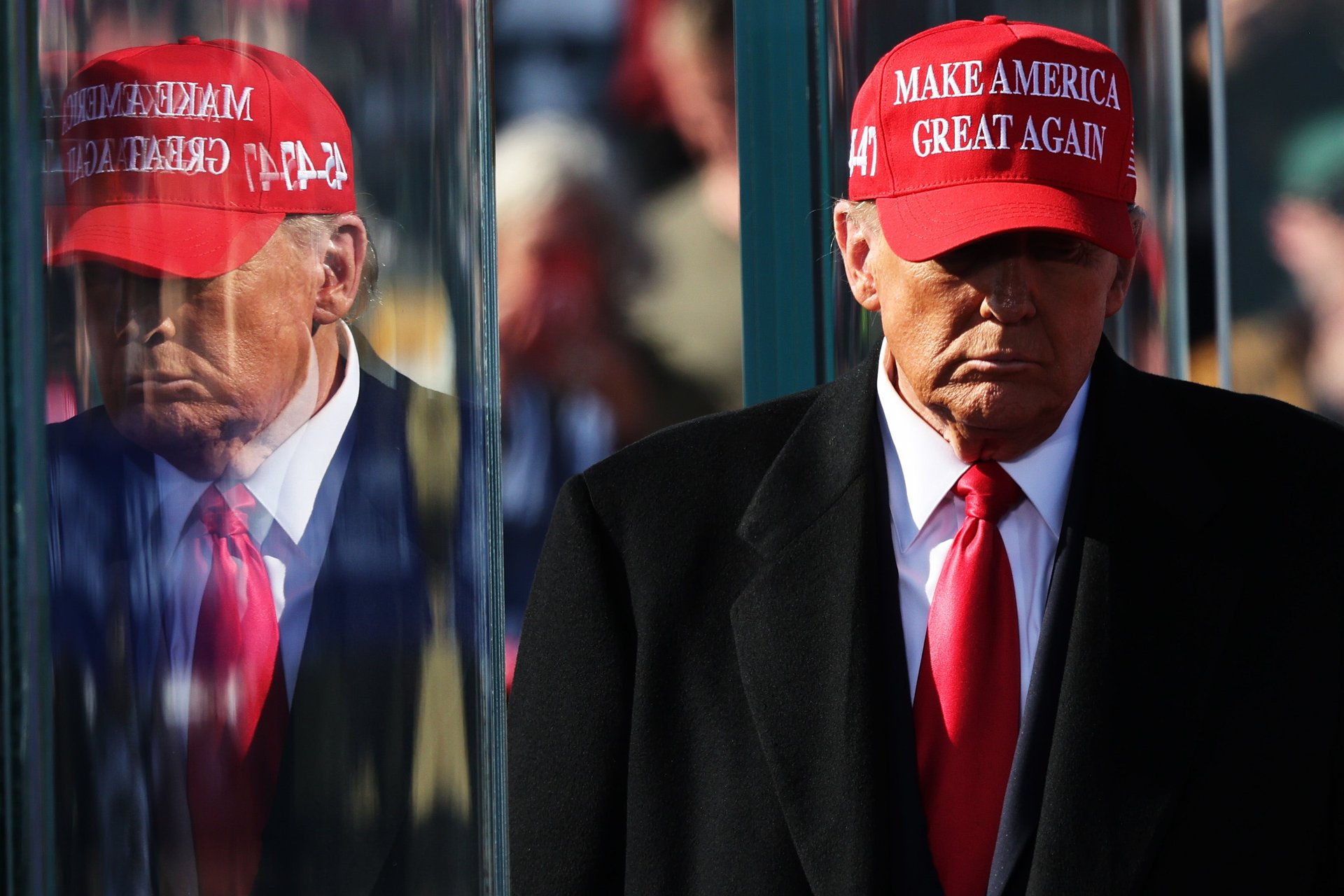Trump's election win could take the U.S.-China chip war to a new level
Trump imposed restrictions on China's Huawei during his first term in the White House

Since President-elect Donald Trump’s first term in office, the U.S. has wielded its trade restriction and sanctioning powers in an effort to curb China’s technological advances. Now that he’s headed back to the White House, the semiconductor war between the U.S. and China could escalate.
Suggested Reading
“If Trump ascends to the office, he’s already said in his campaign rhetoric that he’s going to double down and even make tariffs as well as export controls more severe,” Arthur Dong, a professor at Georgetown University’s McDonough School of Business, told Quartz in a pre-election interview.
Related Content
Efforts to slow China’s advanced chipmaking abilities under Trump’s first presidential term were continued by the Biden administration.
Earlier this year, the Biden administration was reportedly debating using an export control called the foreign direct product rule, which would impact companies in U.S. allies including Japan’s Tokyo Electron (TOELY) and Dutch chip machine-maker ASML (ASML). The rule does not allow the export of any good to any country if it is manufactured with a certain percentage of U.S. intellectual property components. It was later reported that some allies would be exempt if the rule is expanded.
“He’s [Trump] likely to go further than the Biden administration has gone with regard to the imposition of blanket tariffs across a much wider variety of goods,” Dong said.
Trump has already imposed restrictions on chip sales to China
Under Trump’s first administration, Chinese tech giant Huawei was placed on the U.S. Entity List in 2019 after the government determined it had “been involved in activities contrary to the national security or foreign policy interests of the United States.” Other Chinese semiconductor firms have been added to the list to restrict U.S. companies from sending equipment for advanced chip manufacturing.
Trump extended the ban on Huawei’s products through 2021, and trade restrictions on it and other Chinese tech firms have only tightened under the Biden administration.
Before the election, U.S.-based chip equipment makers were reportedly bracing for more export controls under the Biden administration, telling suppliers they worried about risking their vendor status for using certain components supplied by China. The companies also reportedly told suppliers not to have Chinese investors or shareholders.
“If you look at the geopolitical landscape, I think it’s clear that the U.S. will continue to apply pressure on their allies for more restrictions,” ASML chief executive Christophe Fouquet said in October. “The question is, what is right for the Netherlands? What is right for Europe?”
Trump isn’t interested in protecting Taiwan
During his most recent campaign for the presidency, Trump said he would impose tariffs on chips from Taiwan, which could have a heavy impact on global chipmaking, as a majority of the world’s most advanced chips are fabricated by Taiwan Semiconductor Manufacturing Company (TSM). The Taiwanese-chipmaker counts Nvidia (NVDA) and Apple (AAPL) as major customers.
In October, Trump accused Taiwan of stealing the U.S. chip industry during an appearance on the The Joe Rogan Experience podcast — a point he also made in July during an interview with Bloomberg Businessweek. In response to a question about supporting Taiwan against Chinese aggression, Trump said the island “took our chip business from us.”
“I mean, how stupid are we,” Trump said. “They took all of our chip business. They’re immensely wealthy.”
Instead, Trump said, Taiwan should be paying the U.S. to protect it.
“I don’t think we’re any different from an insurance policy,” Trump told Bloomberg. “Why? Why are we doing this?”
Trump isn’t a fan of the Chips Act
During his interview with Rogan, Trump also criticized the U.S. CHIPS and Science Act, which was passed by the Biden administration in 2022 — partly to spur domestic advanced chip manufacturing.
“That chip deal is so bad, we put up billions of dollars for rich companies to come and borrow the money and build chip companies here, and they’re not going to give us the good companies anyway,” Trump said on the podcast, adding that the U.S. should instead put tariffs on chips coming into the U.S.
Over a dozen chipmakers, including U.S.-based Intel (INTC), Taiwan-based TSMC, and South Korea-based SK Hynix, are still awaiting billions of dollars in funding and loans from the U.S. CHIPS Act to build semiconductor hubs throughout the U.S.